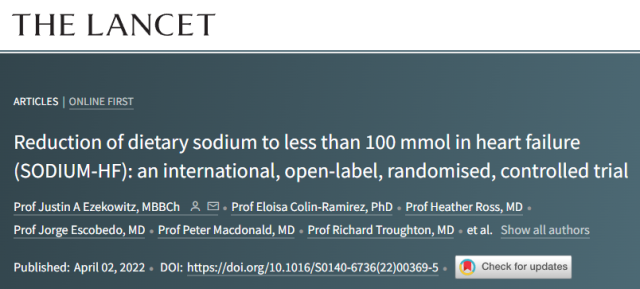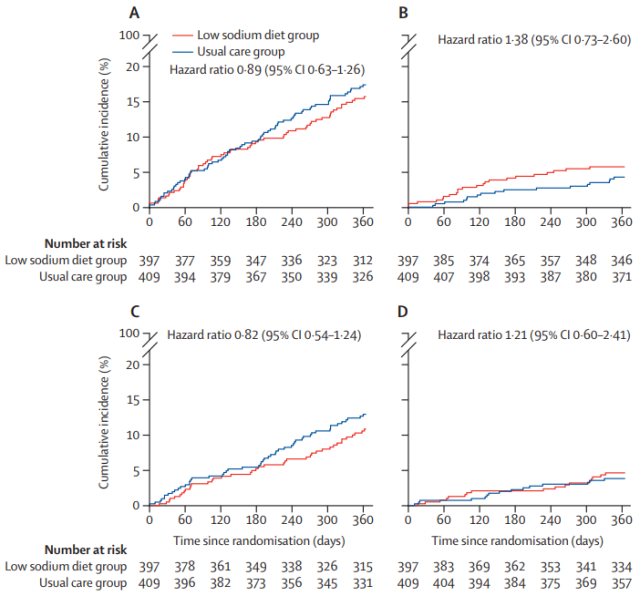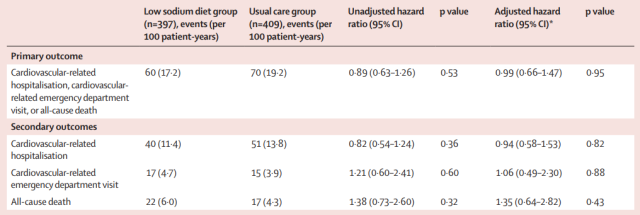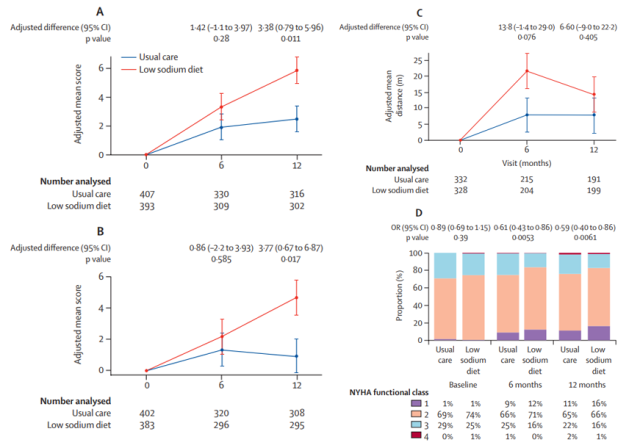Eating less salt doesn’t reduce heart failure death risk
- Normal Liver Cells Found to Promote Cancer Metastasis to the Liver
- Nearly 80% Complete Remission: Breakthrough in ADC Anti-Tumor Treatment
- Vaccination Against Common Diseases May Prevent Dementia!
- New Alzheimer’s Disease (AD) Diagnosis and Staging Criteria
- Breakthrough in Alzheimer’s Disease: New Nasal Spray Halts Cognitive Decline by Targeting Toxic Protein
- Can the Tap Water at the Paris Olympics be Drunk Directly?
Eating less salt doesn’t reduce heart failure death risk
- Should China be held legally responsible for the US’s $18 trillion COVID losses?
- CT Radiation Exposure Linked to Blood Cancer in Children and Adolescents
- FDA has mandated a top-level black box warning for all marketed CAR-T therapies
- Can people with high blood pressure eat peanuts?
- What is the difference between dopamine and dobutamine?
- How long can the patient live after heart stent surgery?
Eating less salt doesn’t reduce heart failure death risk.
People take food as their heaven, and diet directly affects human health.
Reasonable and healthy eating habits are an important aspect of health care, which enables the body to grow and develop healthily.
Unhealthy eating habits can lead to the disorder of normal physiological functions of the human body and the infection of diseases.
A high-salt diet is clearly defined as an unhealthy lifestyle. Behind the delicious food, there are some hidden health risks.
Over time, it increases the risk of high blood pressure, liver disease, kidney disease and heart disease, and even tumors.
Heart failure refers to the failure of the systolic and diastolic functions of the heart to fully discharge the venous blood back to the heart, resulting in blood stasis in the venous system and insufficient blood perfusion in the arterial system, resulting in cardiac circulation disorders.
Recently, researchers from the University of Alberta in Canada published an article entitled ” Reduction of dietary sodium to less than 100 mmol in heart failure (SODIUM-HF) in the authoritative medical journal ” The Lancet “: an international, open-label, randomised, controlled trial ” research paper.
The results of the study were mixed. Reducing salt intake did not reduce the risk of emergency department visits, hospitalizations, or death in heart failure patients, but improved patients’ overall quality of life and symptoms .

For the study, researchers followed 806 heart failure patients at 26 medical centers in Canada, the United States, Colombia, Chile, Mexico and New Zealand. All participants were randomly assigned to a low-sodium diet and a regular group, where the low-sodium diet group received menu recommendations from a dietitian and was encouraged to cook at home and avoid high-salt ingredients.
Most dietary sodium is hidden in processed foods or restaurant meals, with lower levels found in home-cooked meals, the researchers said.
Before the study, all participants consumed an average of 2,217 milligrams of sodium per day. After a year, those in the low-sodium diet group had reduced to 1,658 mg per day, compared with an average of 2,072 mg per day in the regular group.
After 1 year, the researchers compared all-cause mortality, cardiovascular hospitalizations, and cardiovascular emergency department visits between the two groups, but found no statistically significant differences, implying that dietary interventions to reduce sodium intake did not. Reduce clinical events .

Primary endpoint (A), all-cause death (B), cardiovascular-related hospitalization (C), and cardiovascular visit (D)
Specifically, 60 and 70 primary endpoints occurred in the low-sodium diet group and 70 in the usual group, 22 and 17 all-cause deaths occurred in the low-sodium diet group and 17 in the usual group, and 22 and 17 in the low-sodium diet group and the usual group, respectively There were 40 and 51 cardiovascular-related hospitalizations, and 17 and 15 vascular-related emergency department visits occurred in the low-sodium diet group and the usual group, respectively.

Primary and Secondary Endpoints
When the researchers further used three different quality-of-life assessment tools and an analysis of the extent of heart failure, the study found that patients in the low-sodium group continued to improve their health .

Overall quality of life improved
Heart failure patients will continue to be advised to reduce their salt intake, but the expected benefit is now clearer, the researchers said.
As a next step, the researchers will isolate a marker in the blood of the patients who benefit most from the low-sodium diet, follow the trial patients for 24 months and 5 years, and confirm whether further benefits can be obtained in the long-term. other benefits.
Reference:
Paper link: https://doi.org/10.1016/S0140-6736(22)00369-5
Eating less salt doesn’t reduce heart failure death risk
(source:internet, reference only)
Disclaimer of medicaltrend.org
Important Note: The information provided is for informational purposes only and should not be considered as medical advice.



